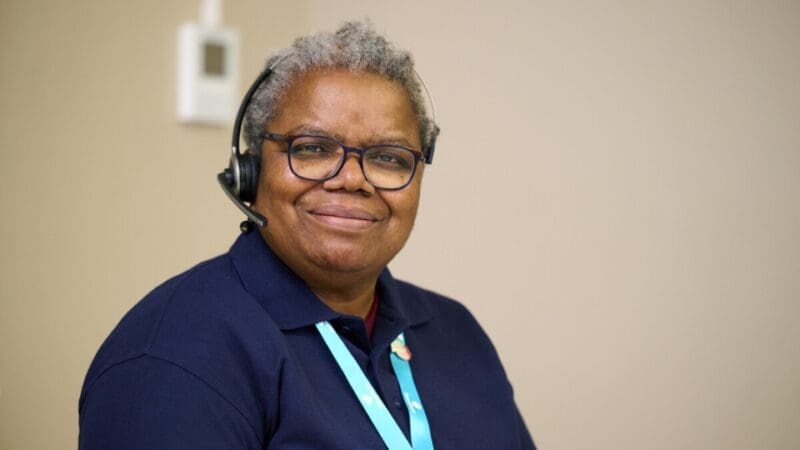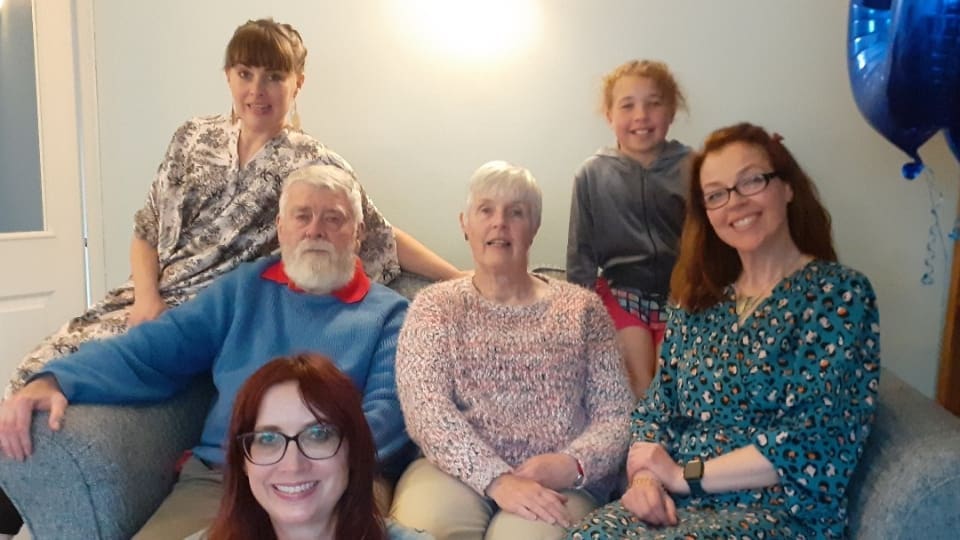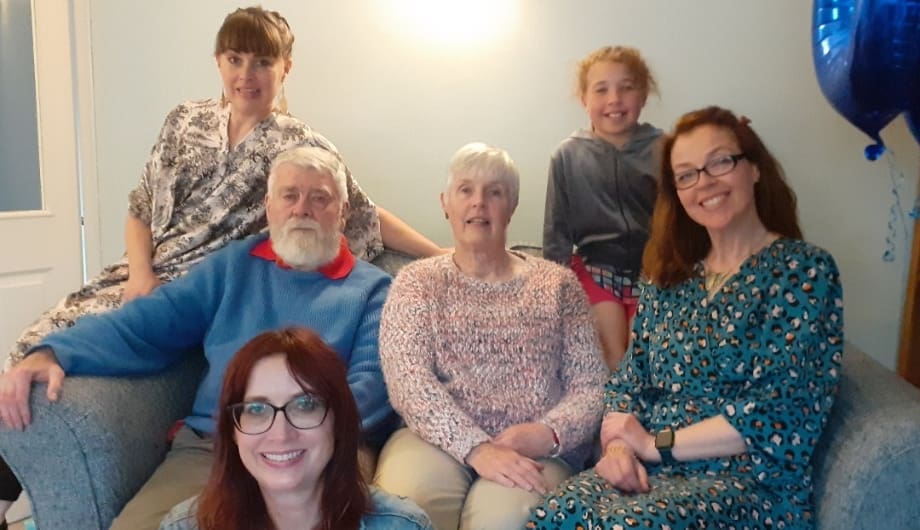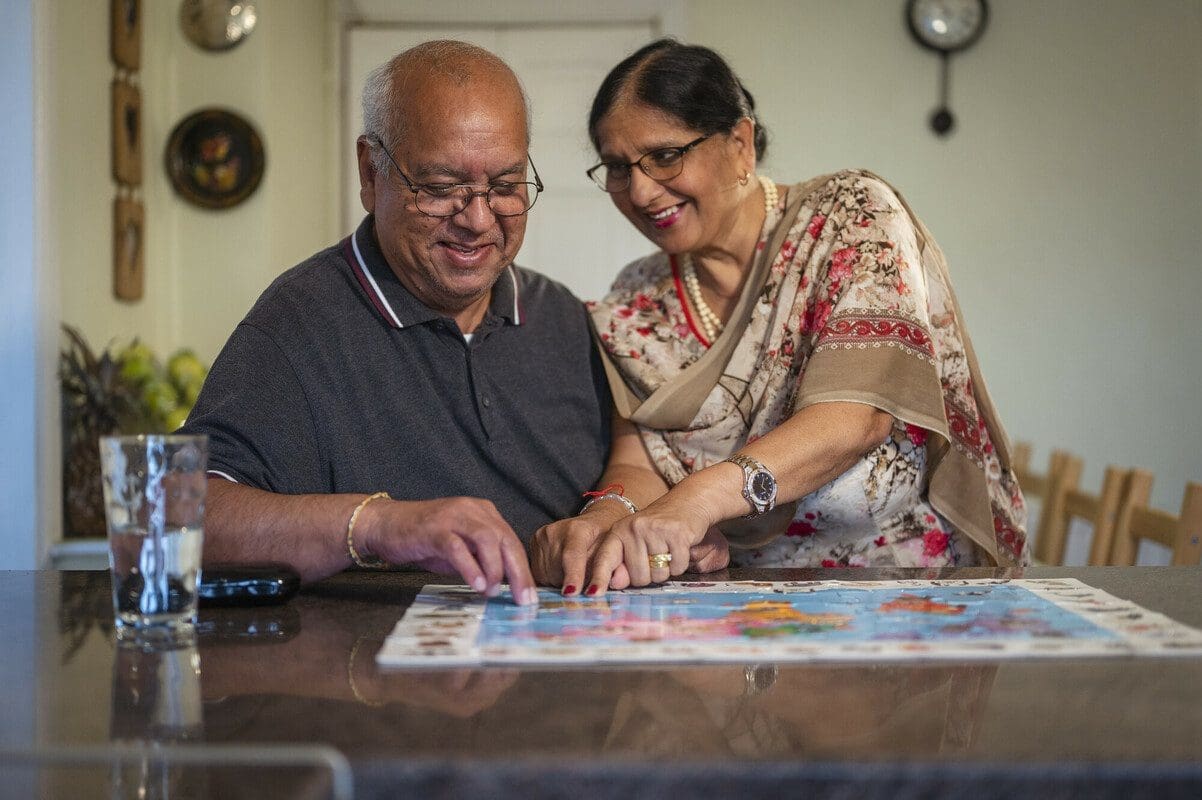
How we can support you
Whether you have a question that needs an immediate answer or need emotional support when life feels overwhelming, these are the ways our dementia specialist Admiral Nurses can support you.

We explain why talking about dementia is so important and suggest ways that you can start a conversation about dementia with family and friends.
Conversations around dementia may not be easy, but they are incredibly important. Whether you’re a carer or living with dementia yourself, knowing you’re not alone in what you’re experiencing can make a huge difference. And if you know someone who cares for a loved one with dementia, giving them opportunities to talk can take some of the weight off their shoulders.
There is often stigma surrounding dementia, which may make it challenging to talk to others about the condition. People may assume that someone living with dementia can’t maintain a normal conversation, or that they don’t want to talk about their diagnosis. And therefore, the relationship trails off.
Julie, who is living with young onset dementia“One difficult thing I’ve had to deal with since my diagnosis is people dropping off due to them not really knowing how to handle me or my condition. People carry preconceptions on what a diagnosis of dementia will do to someone, and out of fear, worry or another reason, they slowly (or sometimes quickly) withdraw from your life.”
For carers too, relationships can fall by the wayside when loved ones don’t know how to talk or hear about the impact dementia is having on their life.
Elliott, whose dad had young onset Alzheimer’s disease“I didn’t talk to any of my friends about what was going on – partly because I didn’t really know how to talk about it, but also because I just wanted to be treated normally.”
Talking with other people about dementia can help to break this stigma.
If you have a family member or friend who is living with dementia or caring for someone with the condition, simply checking in on them can help them feel less alone. It lets them know that you’re there for them, to offer practical help or a listening ear if they need it.
Catherine, whose friend’s husband has young onset dementia“Ask what you can do. It might just be doing the shopping or collecting the children from school. It might be cooking the family dinner once a week or giving them some respite, if that’s possible.”
While it’s not always possible to talk in person with family and friends, there are alternatives, such as having a phone or video call. Dementia support groups and cafés can also be a great opportunity to share experiences with people affected by dementia.
In this video, Tommy, who lives with dementia, talks to Andrew, who cares for his mum, about how his friends don’t mention his diagnosis.
Watch the full conversation between Tommy and Andrew
It can be difficult to know how to start a conversation about dementia with a family member or friend who is living with or caring for someone with the condition. Here are some example sentences that you could try:
Jacqui’s husband, John, lives with Alzheimer’s disease. She shares her advice after planning a party with family and friends who had not seen him in a while.
“To help people in their approaches to John, I sent an email in advance saying, ‘If you have known John for a long time, you will have a common history to talk about. If not, you will probably have to remind him who you are, and there are some conversation topics you could try out.’
Jacqui, who's husband John, lives with Alzheimer's disease“I listed various significant events in his life, such as where he grew up and went to school, where he and I got married, his job and interests — all subjects that I knew he would happily talk about."
“Several people thanked me for this, saying that it meant they could approach John with confidence and start a conversation with him without worrying about how he (or they) would cope.

Jacqui with her husband John and their family all sitting together.
“Every time I looked at him during the party, he was engaging with someone and laughing, so I knew that he was enjoying himself. I was also able to enjoy myself because I could relax and socialise without feeling the need to constantly hover.”
Children and young people may feel unsure about how to handle conversations with a person with dementia. While there is no guidebook to this, it’s important for them to feel relaxed and talk about the things they enjoyed talking about in the past, even if the person with dementia doesn’t respond as they did previously.
Here are some suggestions for conversation starters:
Our dementia specialist Admiral Nurses are here for you if you need advice or support about any aspect of dementia, or just want to talk to someone who understands. Please contact an Admiral Nurse on our free Helpline, book a virtual clinic appointment or schedule a face-to-face appointment at a Nationwide branch.

Whether you have a question that needs an immediate answer or need emotional support when life feels overwhelming, these are the ways our dementia specialist Admiral Nurses can support you.
Understand the emotional impact that a dementia diagnosis can have on you and your loved ones, and the support available.

Information to help you make sure you have a life outside of your caring responsibilities and that you get support from those around you.